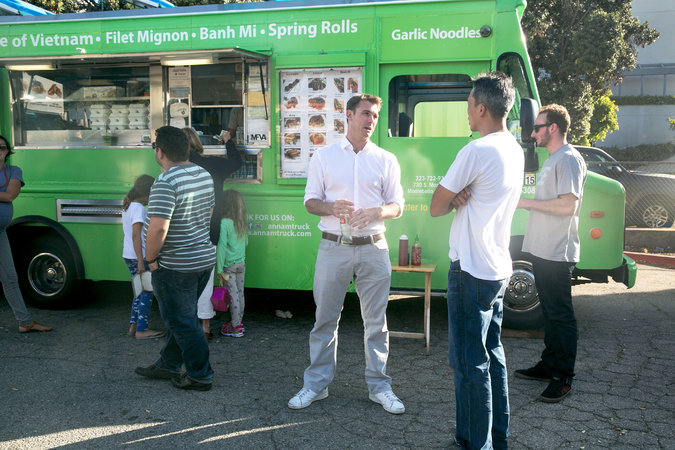LOS ANGELES, CA – Sitting on his sofa in the Venice section of this city, Matt Geller let out an exasperated sigh as he spoke to a familiar official from the county health department. Food trucks represented by Mr. Geller’s group, the Southern California Mobile Food Vendors Association, had been caught dumping waste water down storm drains. “That’s absolutely disgusting,” he said. “A state, federal and county violation.”
Armed with his phone, a law degree and a garage packed with boxes containing health and vehicle codes, Mr. Geller has established himself as a voice for the nation’s food truck movement. Through lawsuits and advocacy, he has written the playbook for how independent owners leverage their popularity to shape laws in their favor. That includes adhering to codes on waste water and collaborating with the city agencies that were once his adversaries.
Mr. Geller is a bit to food trucks as Cesar Chavez was to farm workers, though he has been criticized as being more concerned about the purveyors of bacon-topped cupcakes than about the immigrant small-business owners selling traditional tacos and pupusas.
Last month, he expanded his reach, founding the National Food Truck Association, an umbrella group he hopes will unify thousands of independent food trucks and dozens of local associations (he already has 10, including those in New York, Philadelphia and Baton Rouge, La.). If the group gains a foothold, it will signify the rapid evolution of the business from a quirky fad to a national industry with an estimated $1 billion in annual revenue and a growing political voice.
Find the entire article at The New York Times <here>




